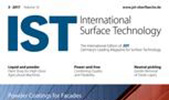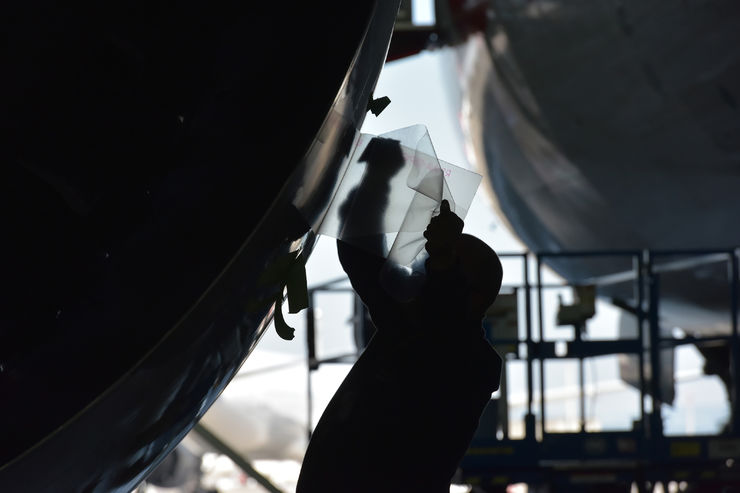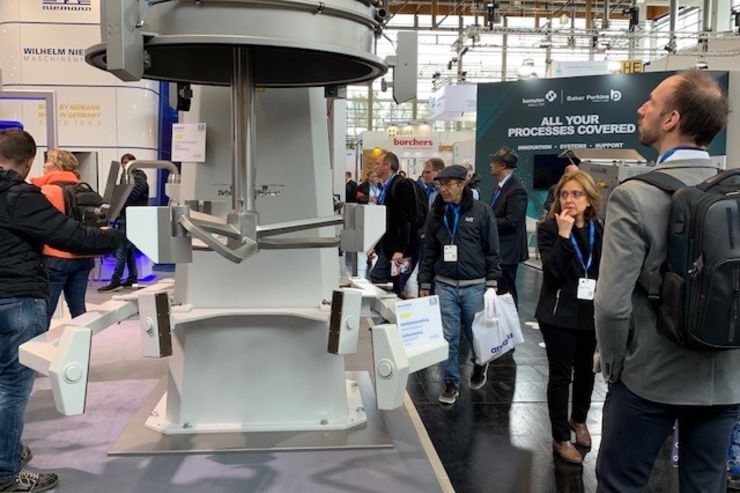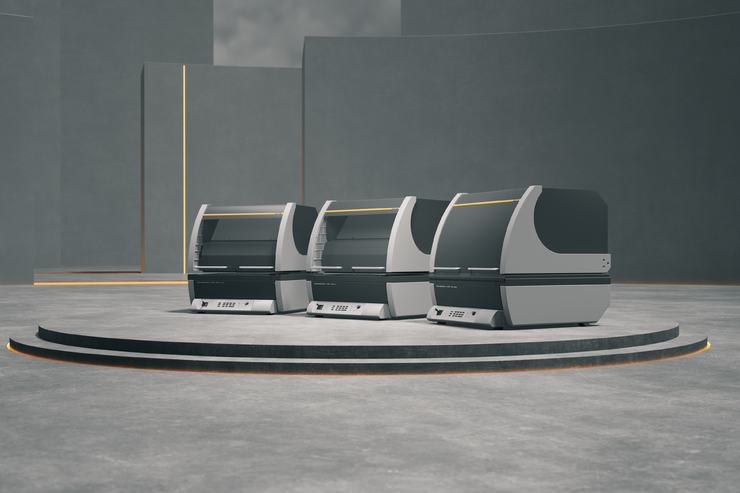The European Aviation Safety Agency (EASA) has granted Lufthansa Technik a Supplemental Type Certificate (STC), which now officially paves the way for the series conversion of two Boeing 777 variants with the fuel-saving Riblet "Aero Shark" films. The STC means that the roll-out of this sustainability technology, jointly developed by Lufthansa Technik and BASF, can now begin on the 777 fleets of launch customers Lufthansa Cargo and Swiss International Air Lines (SWISS). Thanks to its special surface structure of microscopic ribs - so-called riblets - Aero Shark reduces the frictional resistance of the aircraft skin. This reduces fuel consumption and CO2 emissions by about one percent, according to BASF. For each Boeing 777-300ER operated by SWISS, this translates into annual savings of about 400 metric tons of jet fuel and more than 1,200 metric tons of carbon dioxide, the company said. Lufthansa Cargo's slightly shorter Boeing 777F saves around 370 tons of fuel and 1170 tons of CO2 per year.
Riblet films in series
A first Aero Shark-equipped Boeing 777-300ER operated by the Swiss airline (HB-JNH), which also completed the flight test program for the certification it has now received, had already begun daily operations in October with a temporary "permit-to-fly" from the Swiss Federal Office of Civil Aviation (FOCA), valid only for this one aircraft. The STC issued by EASA now allows Lufthansa Technik to apply the Riblet films in series production on 777-300ER and 777F aircraft. The modification of the HB-JNH already started at the end of August and culminated in so-called STC flights with EASA on September 8 and 9. During these flights, detailed proof had to be provided that the Aero Shark had no negative impact on the operational safety and handling of the Boeing 777. The STC flights were followed by several weeks of evaluation of the collected data and other documents, such as results from flow simulations. After EASA recently completed its review of all submitted documents, it finally granted the STC. "The approval of Aero Shark for the Boeing 777 variants is an important step in the dissemination of this new technology for more sustainability in air transport," said Sören Stark, CEO of Lufthansa Technik. "With our partner BASF, we can now support our customers in making not only individual aircraft but entire sub-fleets more climate-friendly. Together, we want to realize the use of the new technology for other aircraft types as well." SWISS and Lufthansa Cargo plan to successively equip all twelve 777-300ERs and eleven 777Fs with Aero Shark. This would make them the first passenger and cargo airlines worldwide to optimize an entire sub-fleet with the Riblet films. Once all Boeing 777s operated by Lufthansa Cargo and SWISS have been retrofitted with Aero Shark, they are expected to reduce the Lufthansa Group's carbon footprint by more than 25,000 metric tons annually, according to BASF and Lufthansa. Lufthansa Technik and BASF also plan to systematically develop the Riblet films for other aircraft types and larger surfaces to help airlines around the world achieve their emissions targets. In initial model calculations, the sharkskin technology in its maximum expansion stage could even avoid CO2 emissions in the order of up to three percent.
Autor(en): wi







